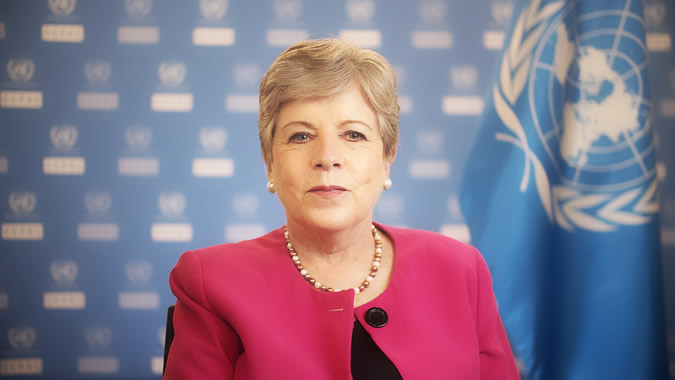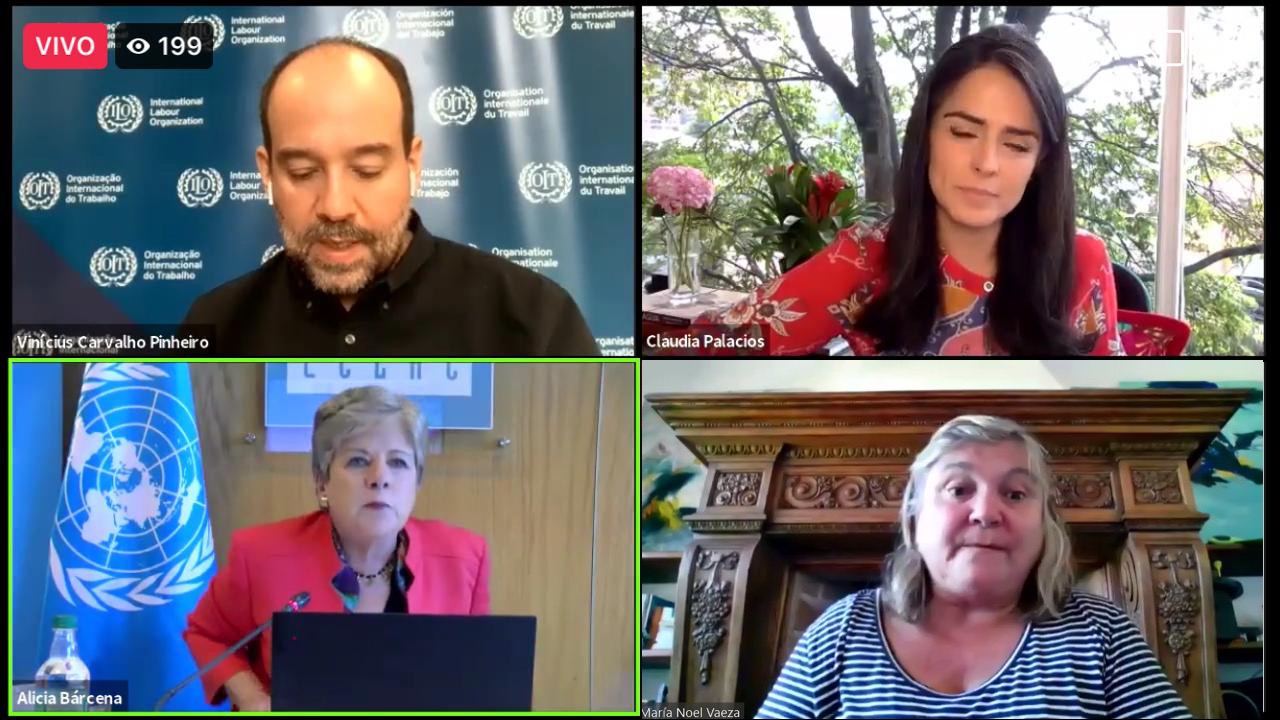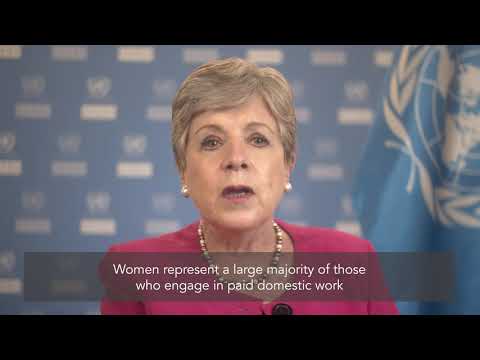ECLAC Calls for Averting Setbacks and Promoting a Transformative, Sustainable Recovery with Gender Equality
Work area(s)
In a message on the occasion of International Women’s Day, the regional commission’s Executive Secretary, Alicia Bárcena, urged for implementing public policies that recognize the work of all women in their diversity and the enormous value they contribute.

The Executive Secretary of the Economic Commission for Latin America and the Caribbean (ECLAC), Alicia Bárcena, called today for joining forces to promote actions, policies and partnerships that safeguard the progress on women’s rights achieved in the last decade, and for implementing public policies that recognize the work of all women in their diversity and the enormous value they contribute.
In a message released today on the occasion of International Women’s Day, ECLAC’s highest authority affirmed that 2021 is a key year for moving decisively towards a transformative recovery with gender equality and sustainability.
“Today, March 8th, on International Women's Day, I recognize the enormous efforts being made by women in Latin America and the Caribbean to recover from the pandemic and to achieve a future with equality. It is imperative that we avert setbacks and promote a transformative and sustainable recovery with gender equality,” Alicia Bárcena stated.
The senior United Nations official underscored that the coronavirus (COVID-19) pandemic has erupted in the world and in the region, exacerbating the inequalities that negatively affect women and girls.
She specified that women account for three out of every four (73.2%) health-sector employees in our region, yet their wage income is 25% below that of men working in the same sector. Women represent a large majority of those who engage in paid domestic work and are responsible for household care – a job that has been rendered invisible until now, but which is key to the functioning of the economy and to health and well-being.
“We at ECLAC have repeatedly stressed that the current social organization of care is unfair. Even before the pandemic, women in the region devoted three times more time than men to unpaid care,” she warned.
Alicia Bárcena added that the current crisis has also produced a setback of more than a decade in the progress achieved in terms of women's labor participation. For example, their participation rate contracted by 6 percentage points, reaching 46% compared with 52% in 2019, and unemployment affects 1 out of every 5 women.
Furthermore, the work overload and exhaustion prompted by the COVID-19 crisis compounds a regional situation already marked by a tremendous lack of labor protection: 1 in 5 women in the region’s health sector is still not affiliated with or contributing to social security, a figure that worsens to 3 out of every 4 in the case of paid domestic workers.
“Even though women account for most frontline staff, paradoxically, very few are found leading countries, making decisions in the public sphere on national or local responses, or leading scientific and research teams. The UN is taking decisive steps towards parity. The region already has 10 countries that are advancing and consolidating legislation that promotes political parity, but this change must be accelerated,” ECLAC’s Executive Secretary emphasized.
For all these reasons, she urged for implementing public policies that would enable ending the wage gap; including all women in core decision-making for recovery; prioritizing domestic workers and caregivers in vaccination plans; guaranteeing an emergency income for the 118 million women who live in households below the poverty line in our region; and achieving digital inclusion for 4 out of every 10 women in the region.
“The horizon is equality and the path is sustainable development. Let us move towards a care society, in which we take care of the planet, of people, of those who care for us, and also take care of ourselves. This is the basis of what we call a sustainable transformation with equality. It is an urgent and civilizational change. When one woman advances and transforms, we all advance, because when women advance, our society progresses. The world and women can wait no longer! The time is now,” Alicia Bárcena declared.
Related content

ECLAC Stresses the Importance of Promoting Women’s Economic Autonomy as the Key to a Sustainable Recovery with Equality
At a high-level seminar organized jointly with UN Women and the ILO, the organization’s Executive Secretary, Alicia Bárcena, presented a proposal for a basic digital basket and emergency income for…
Type
Country(ies)
- Latin America and the Caribbean
Related link(s)
Contact
Public Information Unit
- prensa@cepal.org
- (56 2) 2210 2040
